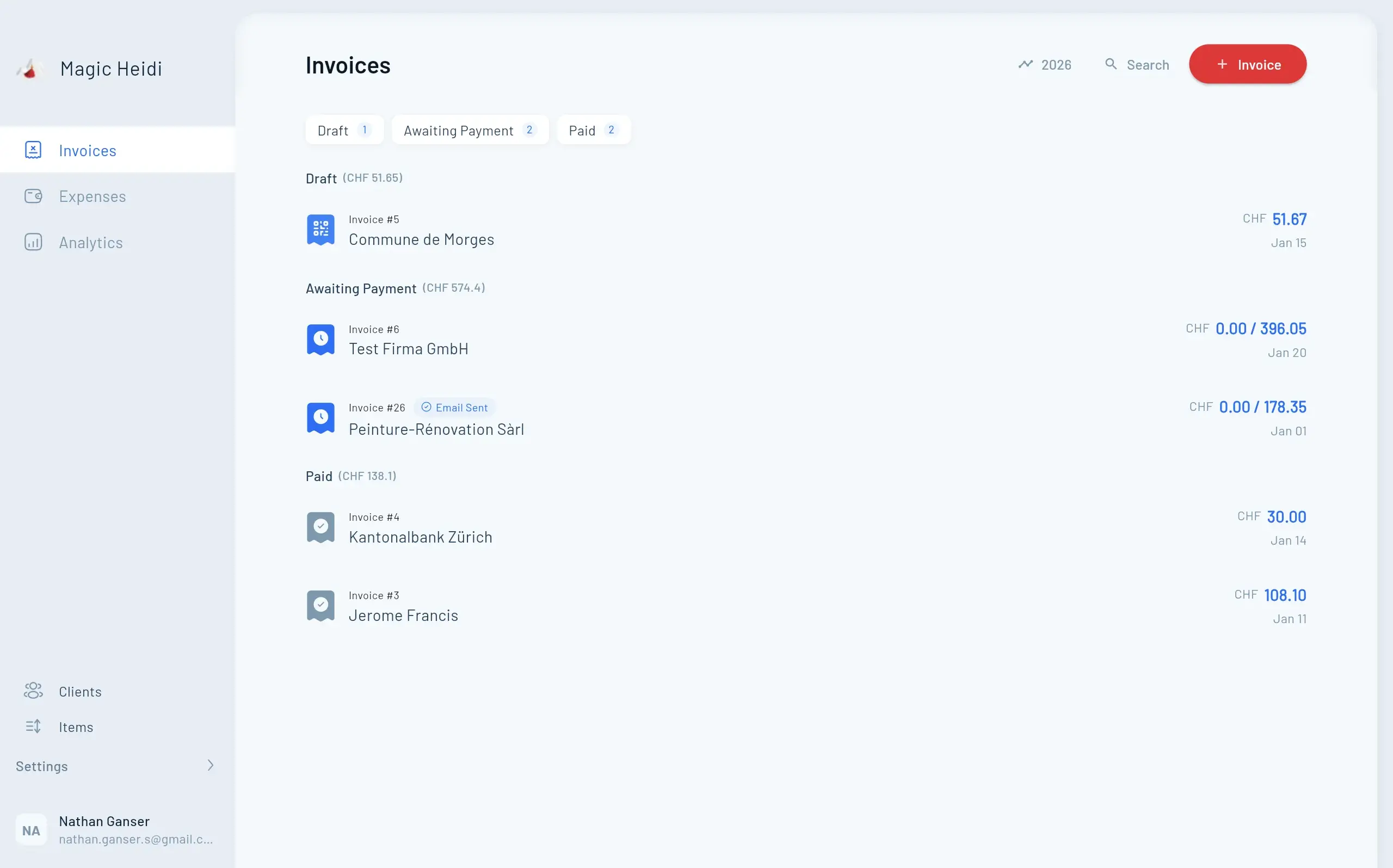Start Invoicing, You're in Business
Your business starts the moment you invoice two or more clients. No complicated paperwork, no notary visits, no minimum capital requirement.
- Register with AVS once you earn over CHF 2,300 annually
- Commercial register only required if revenue exceeds CHF 100,000 (costs CHF 120)
- No mandatory business bank account (though highly recommended)
- You can start today with virtually zero upfront investment




